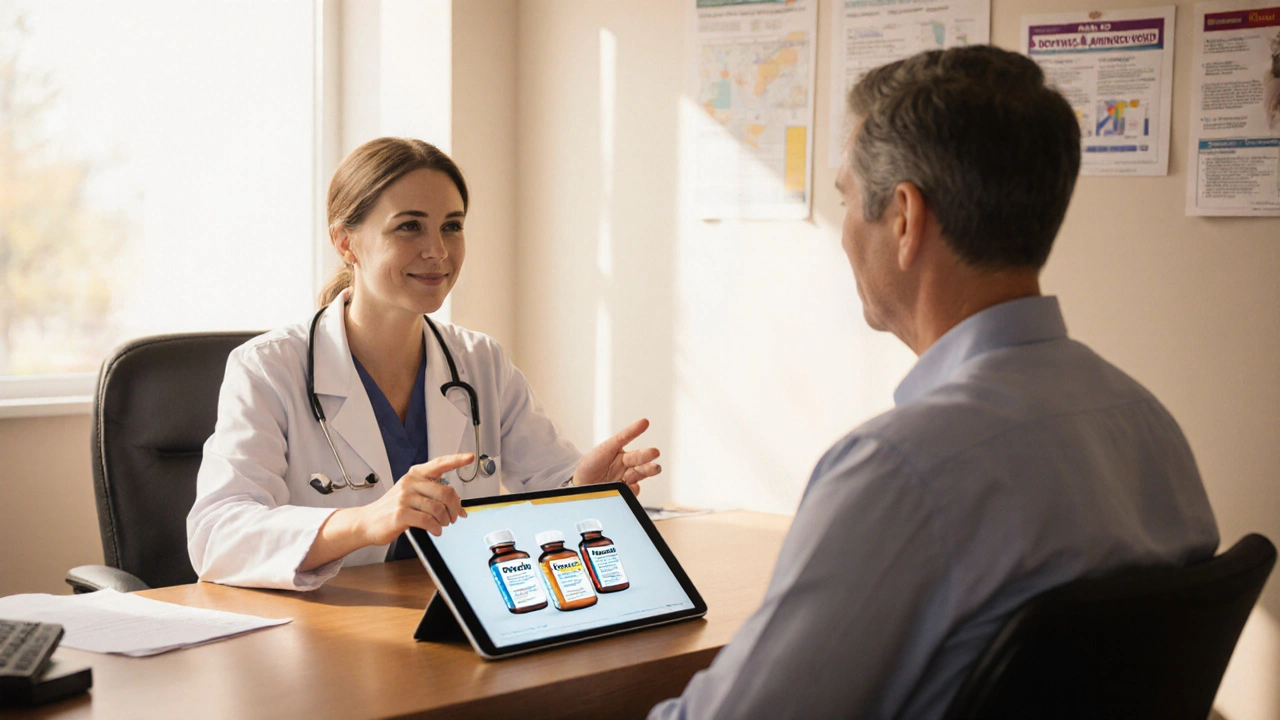UTI Treatment: What Works Fast and How to Keep It From Coming Back
If you’re feeling the burn, urgency, or cloudy urine, a urinary tract infection (UTI) is probably the culprit. The good news? Most UTIs are easy to clear up with the right approach, and you can take steps to lower the chance of a repeat infection.
First, see a doctor. A short urine test tells the lab which bugs are causing the problem and which antibiotics will hit them hardest. Even if you’ve had a UTI before, the responsible bacteria can change, so a fresh test is worth it.
Common Antibiotics for UTIs
Doctors usually prescribe one of three families of antibiotics for an uncomplicated UTI: trimethoprim‑sulfamethoxazole (Bactrim), nitrofurantoin (Macrobid), or fosfomycin (Monurol). All three are taken for a short course – often three to five days – and they clear the infection in most people.
If you’re allergic to sulfa drugs, your doctor might choose a fluoroquinolone like ciprofloxacin, but those are saved for tougher cases because of side‑effect concerns. Always finish the full prescription even if you feel better after a couple of days; stopping early lets bacteria survive and become resistant.
Home Remedies and Lifestyle Changes
While antibiotics do the heavy lifting, some simple habits can speed relief and lower the odds of another infection. Drinking plenty of water dilutes bacteria and helps flush them out. Aim for at least eight glasses a day, and keep a water bottle handy.
Crank up your intake of unsweetened cranberry juice or cranberry tablets. The compounds in cranberries may prevent bacteria from sticking to the bladder wall, though they don’t replace antibiotics.
Don’t hold it in. Going to the bathroom as soon as you feel the urge empties the bladder before bacteria have a chance to multiply. After sex, urinating within 15 minutes can also cut down on post‑coital UTIs.
Switch to cotton underwear and avoid tight jeans. Breathable fabrics keep the genital area dry, making it harder for bacteria to grow. If you’re prone to repeats, discuss a low‑dose prophylactic antibiotic with your doctor – sometimes a small daily pill keeps the infection at bay.
Lastly, watch your diet. Too much caffeine, alcohol, or spicy foods can irritate the bladder and worsen symptoms. Cutting back during an infection can make you more comfortable.
In short, treat a UTI quickly with the right antibiotic, stay hydrated, practice good bathroom habits, and tweak your lifestyle to keep bacteria away. If symptoms linger after a full course of meds, get back to your doctor – you might need a different drug or a deeper look into your urinary health.
Baycip (Ciprofloxacin) vs Common Antibiotic Alternatives: A Detailed Comparison
A detailed comparison of Baycip (Ciprofloxacin) with top antibiotic alternatives, covering efficacy, safety, cost, and when to choose each option.
Read more
